Haunted by narcos: The celestial land of the Sierra Madre and the author caught in its spell
As a deadly war between rival cartels erupts in Mexico, and a shocking sequence of serial killings continues unabated, a female activist and a renegade cop team up to try to bring down the narcos in Tim Baker’s newly published crime thriller ‘City Without Stars’. Here the Australian author reflects on the allure – and dangers – of the Sierra Madre mountains…
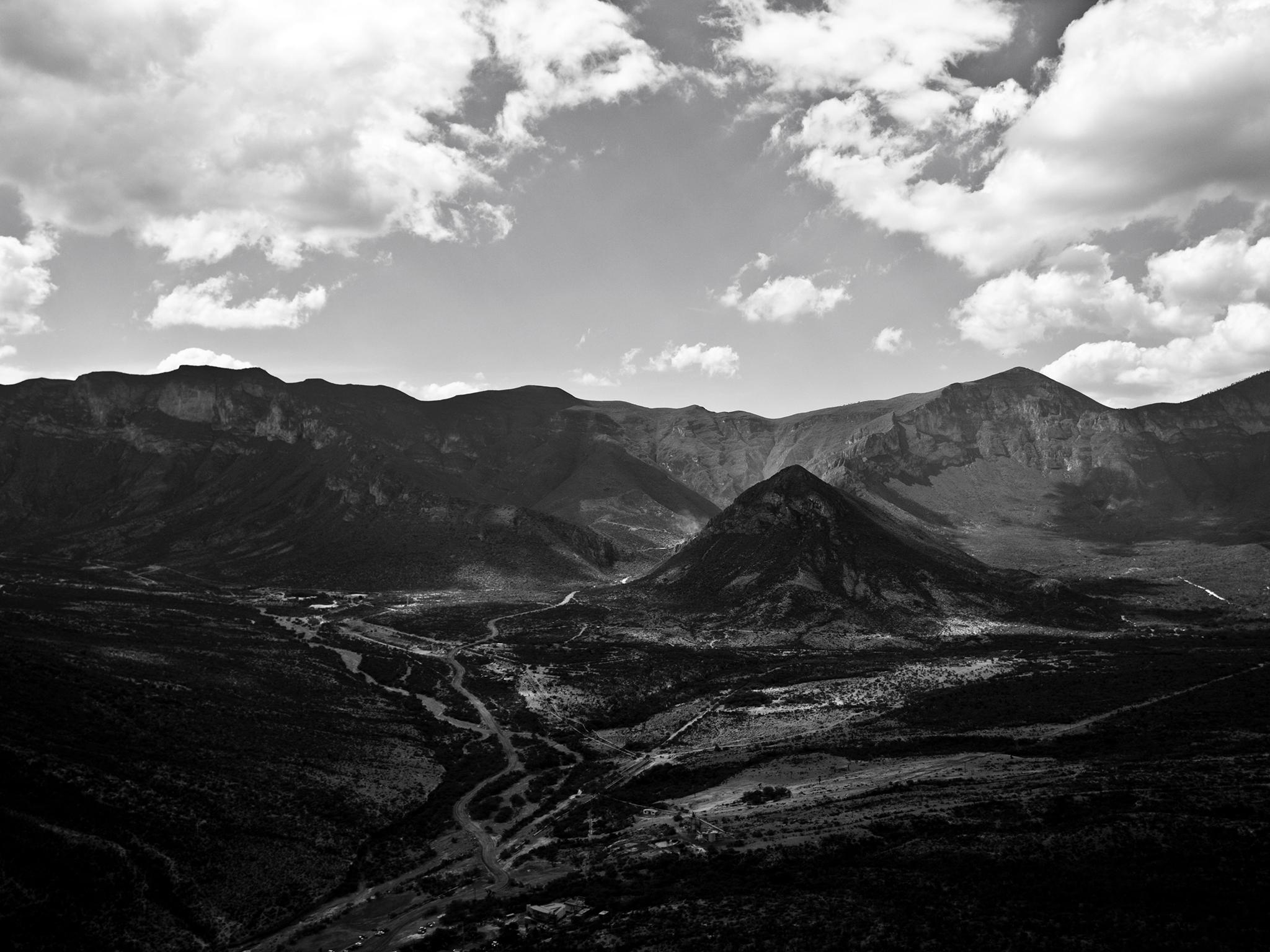
Your support helps us to tell the story
From reproductive rights to climate change to Big Tech, The Independent is on the ground when the story is developing. Whether it's investigating the financials of Elon Musk's pro-Trump PAC or producing our latest documentary, 'The A Word', which shines a light on the American women fighting for reproductive rights, we know how important it is to parse out the facts from the messaging.
At such a critical moment in US history, we need reporters on the ground. Your donation allows us to keep sending journalists to speak to both sides of the story.
The Independent is trusted by Americans across the entire political spectrum. And unlike many other quality news outlets, we choose not to lock Americans out of our reporting and analysis with paywalls. We believe quality journalism should be available to everyone, paid for by those who can afford it.
Your support makes all the difference.We took the turn off into the Sierra Madre about 100 kilometres north of Guadalajara, the narrow road curving around a great bluff before thrusting straight ahead towards the distant mountain peaks.
Our local guide, Antonio (due to security concerns, I have changed the names of local people), stomped on the accelerator and soon we were doing over 150km/h (94mph), stones singing a reckless song against the chassis of our car as the tyres wavered on the border of bitumen and dirt – on the razor’s edge of a potentially fatal accident. My hands clasped my knees as I fought back the urge to tell Antonio to slow down; after all, in my naivety, I thought I knew why he was risking our lives...
That evening, when I was sitting around the camp fire, feeling for the first time the immense sense of isolation the Sierra Madre bestows, Antonio asked me outright if his driving had frightened me. A little, I confessed, but I understood why he was speeding: we were entering la tierra celestial – the celestial lands of the Sierra Madre, and he had been trying to escape all the negative energy of the outside world so that we could enter this sacred site in a pure state.
He laughed out loud. The real reason was far more mundane – and disturbing. He’d simply been making sure we weren’t being followed by narcos.
Narcos?
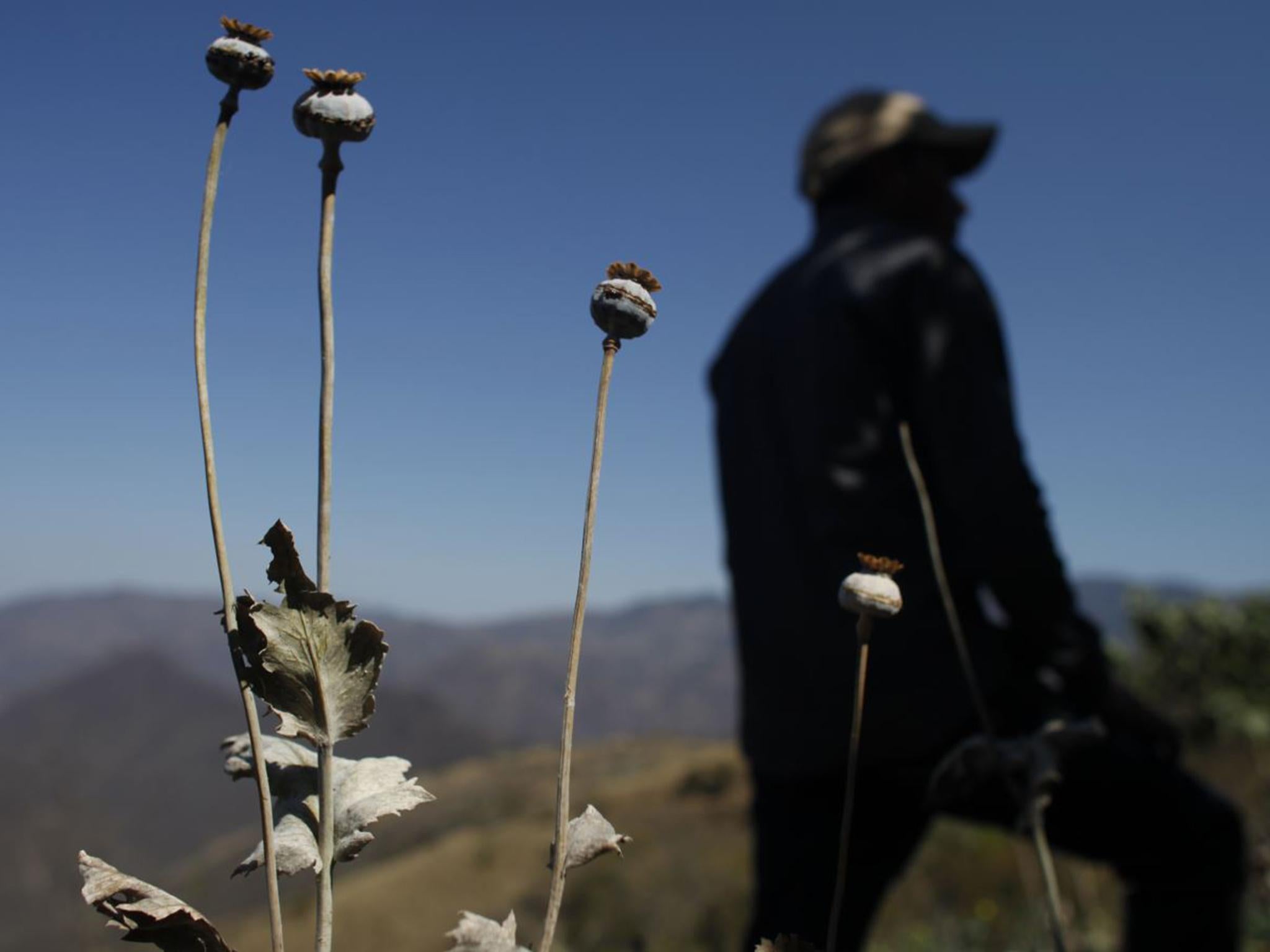
That was the first time I’d heard that word on the trip.
It would not be the last.
I’d been sent on what I thought was a dream assignment to one of the last great wilderness regions of North America, to work on a film script about shamanism that had absolutely nothing to do with Mexican crime. In fact, when I first arrived in Mexico in 1998, I still thought of Pablo Escobar and the Colombian cartels whenever I heard the word “narco”. I was in for a swift but profound learning experience.
Seeing my astonishment, which betrayed all my ignorance about the drug trade, Antonio and Eva, another one of our local guides, patiently started explaining the new realities of the cartels in Mexico.
Under the ruthless leadership of narco chieftains such as Miguel Ángel Félix Gallardo, known as “The Godfather”; the late Amado Carrillo Fuentes, known as “The Lord of the Skies”; “El Chapo” Guzmán, a notorious escape artist; and the vicious Los Zetas gang of paramilitary deserters, Mexico had begun in the late 1980s and early 1990s to wrest control of the international cocaine trade from the Colombia cartels, at the same time beginning to expand its own local marijuana, heroin and crystal meth production.
The Colombians had been infamous for their savagery but had met their match in the Mexicans, who pivoted ruthlessly from mere border crossing facilitators to exerting total control over all aspects of supply and distribution, including money laundering.
There had been one major difference between the cartels of Colombia and Mexico. The Colombian narcos had emerged out of the chaos of civil war, whereas the Mexican cartels were creating an anarchy all their own that could conceivably plunge the nation into civil war (many would argue that has already happened, with over 200,000 killed since the launch of President Calderón’s disastrous military action against drug trafficking in 2007).
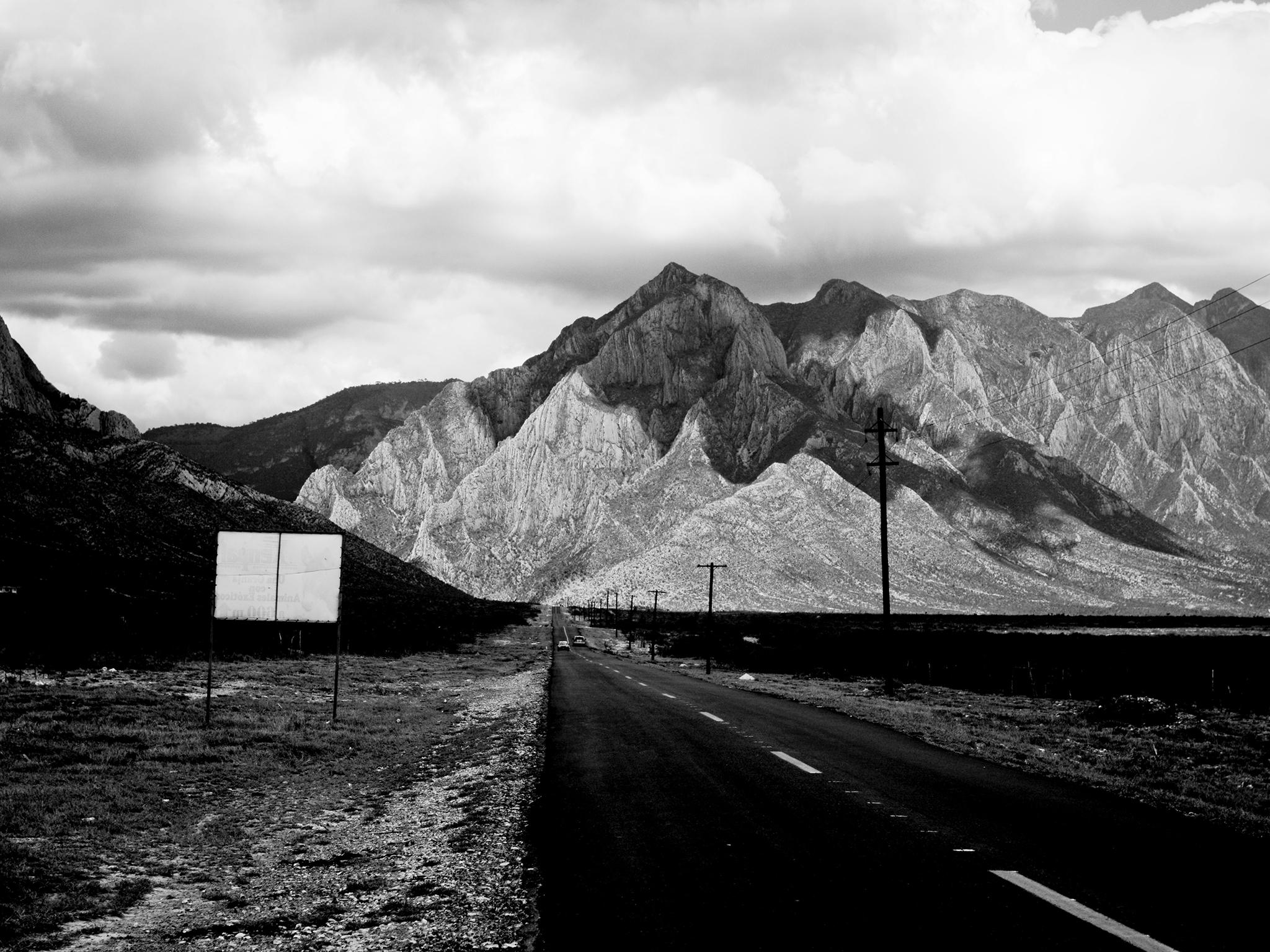
This was a lot to take in for a guileless gringo like myself, especially in such a dislocating setting. The sublime grandeur of the Sierra Madre incited the same bizarre mixture of awe and near panic that I’d experienced in other boundless landscapes that combine vastness with vertiginous vistas – the Blue Mountains, the Grand Canyon, Verdun Gorge or Wadi Rum. It was a strange blend of agoraphobia with claustrophobia: as though the more immense the panorama, the more ensnared I felt. It didn’t help that narcos had been added to this volatile mix.
Things became more disjointed the following day, when we set off to find a remote village accessible only on foot. After a two-hour hike and still far from our final destination, we came across a small group of huts that had recently burnt down. The ground was still hot underfoot. There was no sign of any inhabitants. There weren’t even footprints in the ash that blackened the area. In fact there was nothing, except for a heavy sense of desolation.
Antonio was anxious to leave. He said the houses had probably been long abandoned and the fire could have been caused by a lightning strike during a storm the week before. I could tell Eva was unconvinced but she didn’t want to talk about it. I found out why when, at the end of a hard day’s hike, we finally made it to the indigenous community that was hosting us.
They told us that narcos had been mounting sometimes lethal clearing campaigns throughout the region, especially in the northwest, doing everything possible to intimidate local communities as they seized control of vast swathes of the Sierra Madre.
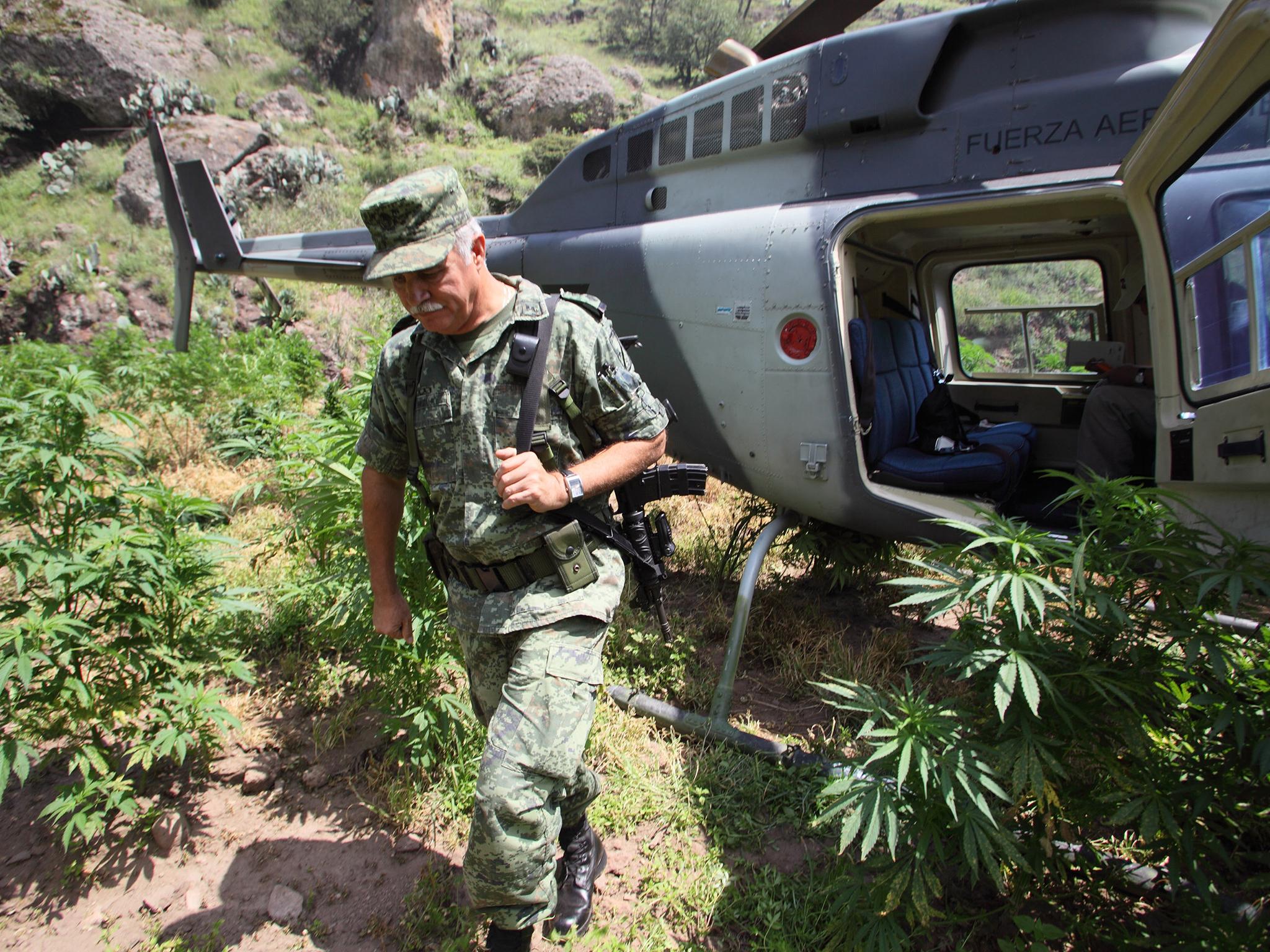
The mountains, with their labyrinthine mule tracks and improvised plateaux airfields for bush pilots flying on chemically-induced confidence, made perfect hideouts and secret staging posts for all kinds of illicit operations: gun-running, people smuggling, drug drop-offs, meth labs.
That night I slept very badly. I hadn’t expected the vast nature reserve of my imagination to be infiltrated by criminals with AK-47s.
Eva helped to put my concerns into perspective. “What happens here happens everywhere,” she said. “Whether they’re narcos with guns or architects with bulldozers, they’re all after the same thing... seizing control of what’s left of nature.” In other words, enjoy it while you can – and keep your head down.
The next week passed peacefully enough in the thin, high air and full sunshine, beauty evident with every hill we crested, but my daily discussions with Eva took on a tragic aspect as she recounted her former work training single women who had escaped the horrors of the maquiladoras – the sweatshops that shadowed the US-Mexican border like a shameful scar. Conditions were harsh; pay higher than normal but so was the cost of living and housing was scarce and often unsanitary.
Worst of all, the women had been targeted by unknown killers who had murdered over one thousand of them with impunity. More victims were being added every week and no one was being arrested. There was only one group powerful and frightening enough to get away with it: the narcos.
Eva had taught her young female runaways how to shoot and edit a film, and then found them second-hand equipment so that when they went back to their villages in the south they could tell their own stories; have their own voice. Nothing would change, she said, until their story was repeated so often that authorities could no longer ignore it.
On our last day in the sierra, we found ourselves driving into the slanting rays of the setting sun, hurrying to get to a small town with the promise of bunk beds before dark. The playful banter and songs that so often filled the car had given way to a tense, silent fatigue. Everyone had warned us that we should never drive at night.
Antonio slowed suddenly, pulling off the road. He’d told us to get out of the car as quietly as we could. Without asking any questions, we obeyed.
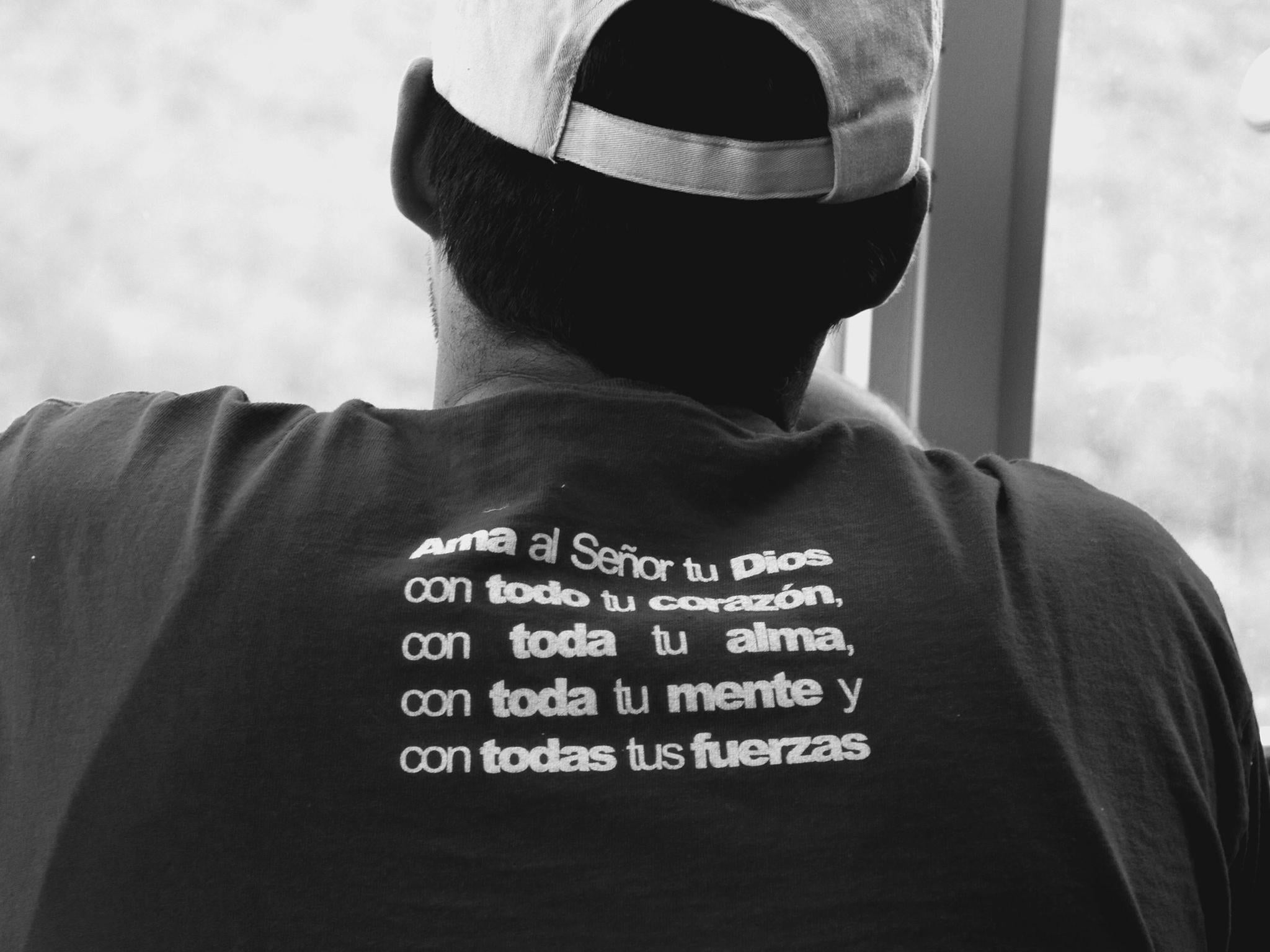
The mountains rang with a dislocating silence after hours of jarring across a rocky track, and it took me a moment to locate the problem. Far along the track, just as it began to ribbon its way through the shadows, I saw the silhouette of several stationary vehicles. Eva passed me her binoculars, but I already knew what it was: a roadblock.
By this stage of the trip, I had already heard about the growing problem of roadblocks when travelling through the Sierra Madre. They were manned by one of two groups: the cartels or the military (after Calderón’s military intervention escalated regional tensions, a third group emerged to set up roadblocks – community protection groups, or vigilantes).
Like the clearing operations, cartel-maintained roadblocks were set up principally to ensure that outsiders like us wouldn’t stumble across any significant activities. Strangers were robbed and turned away with a beating – if they were lucky. Even local indigenous communities would be stopped and forced to pay “tolls” to access their own traditional lands. Increasingly, travellers were being accused of being spies for rival cartels and simply murdered.
Even a military or police checkpoint could be problematic, with possible issues including arbitrary arrest; accidental shootings caused by nervousness, misunderstanding or drunkenness; bribery; beatings; or simply being refused access and turned back. A military presence could also denote some kind of police operation with the attendant risk of being caught in stray gunfire.
We had no choice. We waited over three hours until the checkpoint was disassembled and the people who manned it drove away, disappearing into the mysterious dark folds of the valley.
My head was spinning by the time I returned to Mexico City two days later, and it wasn’t just from the altitude or air pollution. The trip to the sierra had revealed a secret side to a country I loved, and all my storytelling priorities had shifted. My focus was no longer on shamans and cultural synchronicity but about crime and punishment – or lack thereof.
I asked Eva if she could put me in contact with someone who’d had dealings with the cartels, and she quickly arranged an introduction to Roberto, a photographer who worked for major travel and lifestyle magazines.
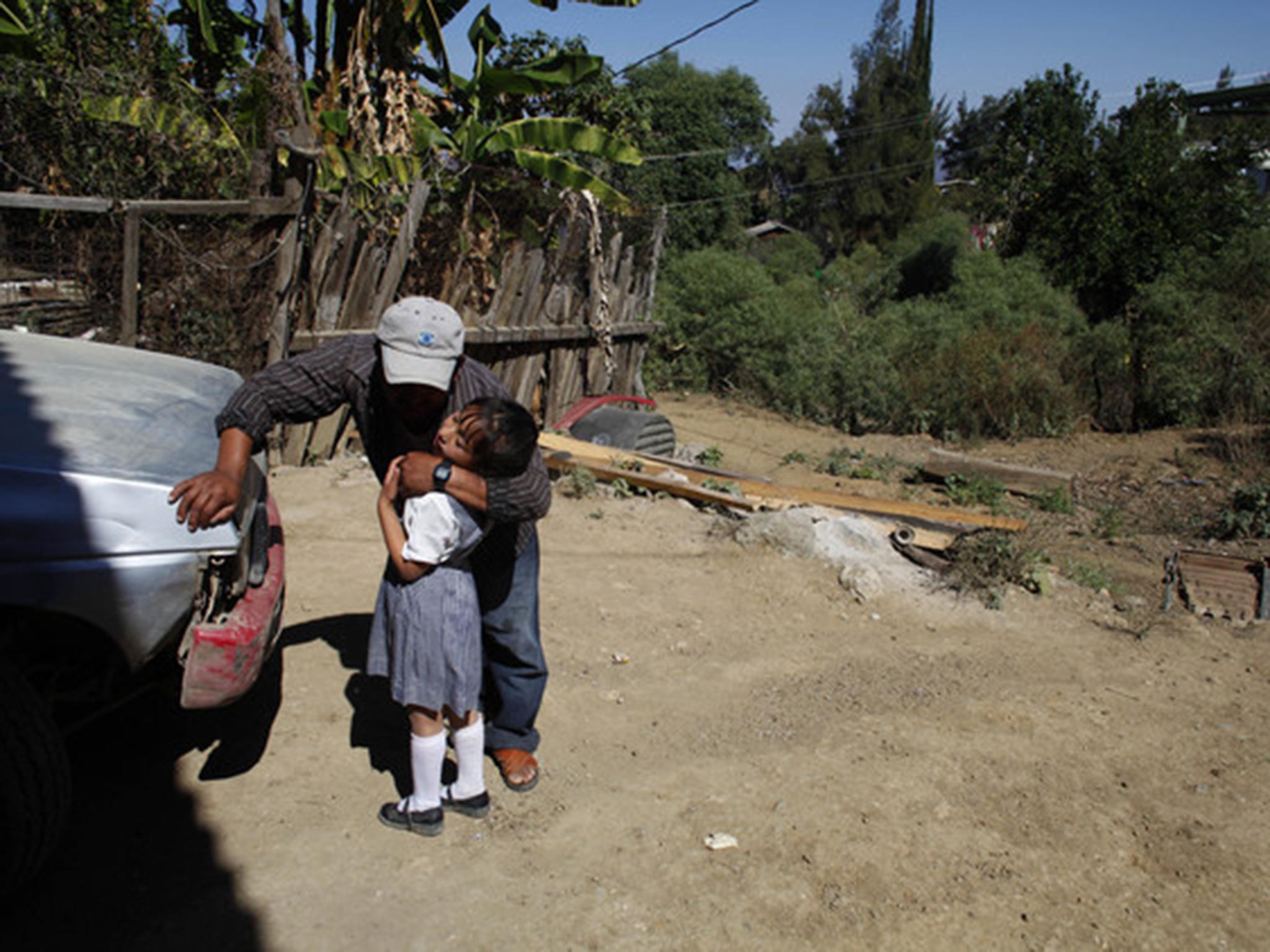
Roberto had been given a routine assignment to do a photo shoot on tequila in the highlands of the state of Jalisco. He started by focusing on large, well-known agave growers and distillers, and then interviewed some of the older family run enterprises which had been making tequila for generations.
Someone must have heard about his visits. Maybe Roberto was a spy for the government or the tax people. Maybe he knew about the protection money small businesses were being forced to pay local cartel leaders. He was an outsider, sticking his nose into other people’s business. He needed to be taught a lesson.
On his third day, Roberto’s car was run off the road and he was pulled out and beaten so badly that at first doctors feared he had been blinded for life. As he lay unconscious on the road, his rolls of film were stolen from his car – only, without knowing it, they took mainly unused rolls of film. Most of his exposed material was safe back in a motel fridge.
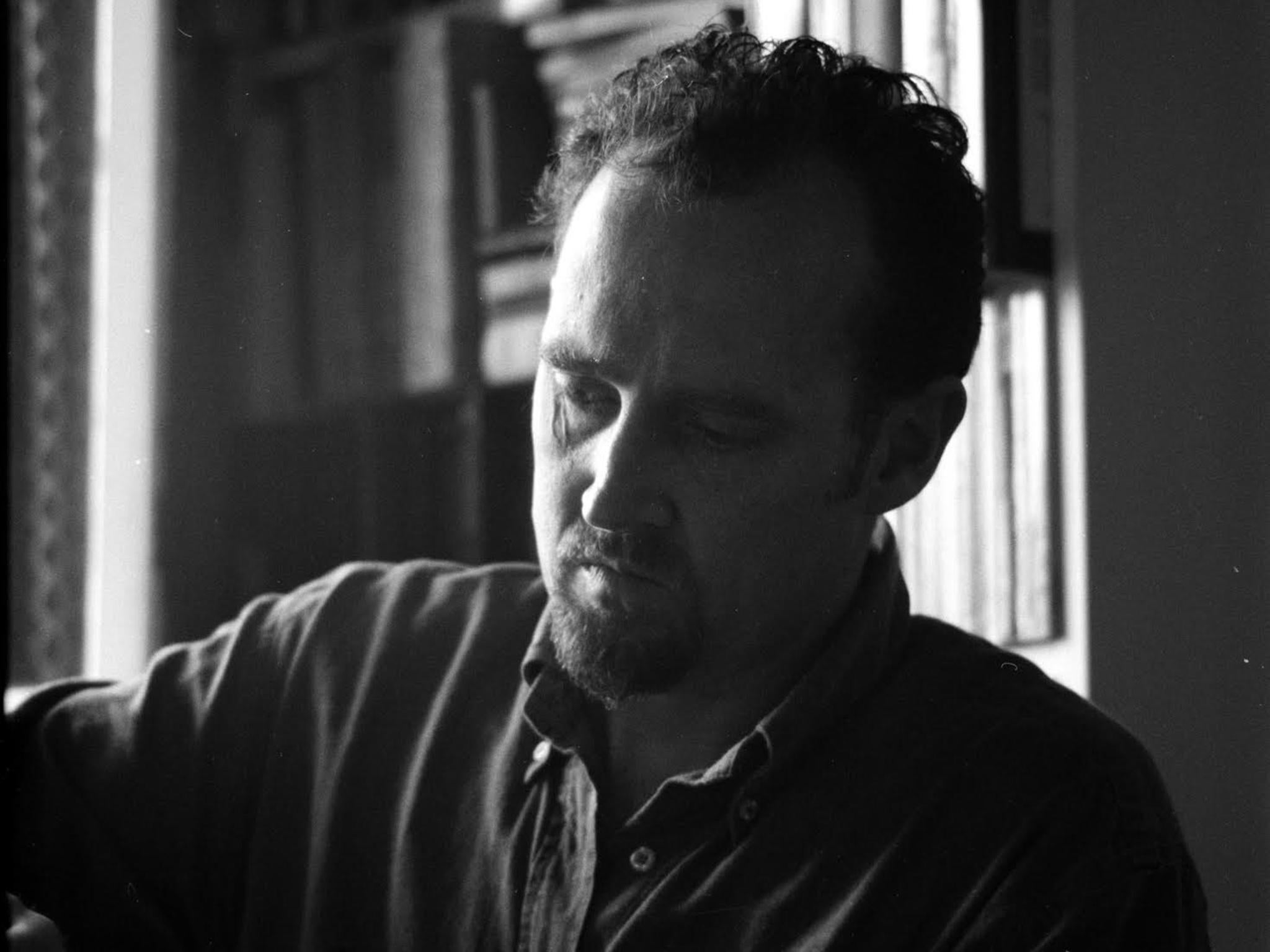
Roberto’s photo editor compiled the piece for him. Roberto didn’t work for months. It wasn’t just the physical recovery, it was the psychological one. For years he had roamed the country, interacting with locals and getting paid for what he loved to do. And then one day that freedom ended. “That’s what narcos do,” he said. “They imprison citizens in their own country.”
When Roberto was assaulted, Jalisco was not considered a particular hotspot for narcos, but it ended up becoming a major battleground in the war between El Chapo, Los Zetas, Knights Templar and the Jalisco New Generation cartel. That’s the way it worked, I finally realised. Every hut that was burnt down, every car that was stopped, every journalist that was beaten or even killed, represented another step towards total control for the cartels.
After having spoken to Roberto and Eva, I knew I wanted to write a novel about what was happening. It would take another twenty years to complete. Over those years I was time and time again shocked by the ferocity of the cartels and the apparent powerlessness of the government to halt them.
But I was also struck by the determination of ordinary Mexicans to voice their protest against both the narcos and the government. The continuing struggle of decent, courageous Mexicans to oppose the combined forces of criminality, corruption and heartless economic exploitation has touched people in countries all around the world.
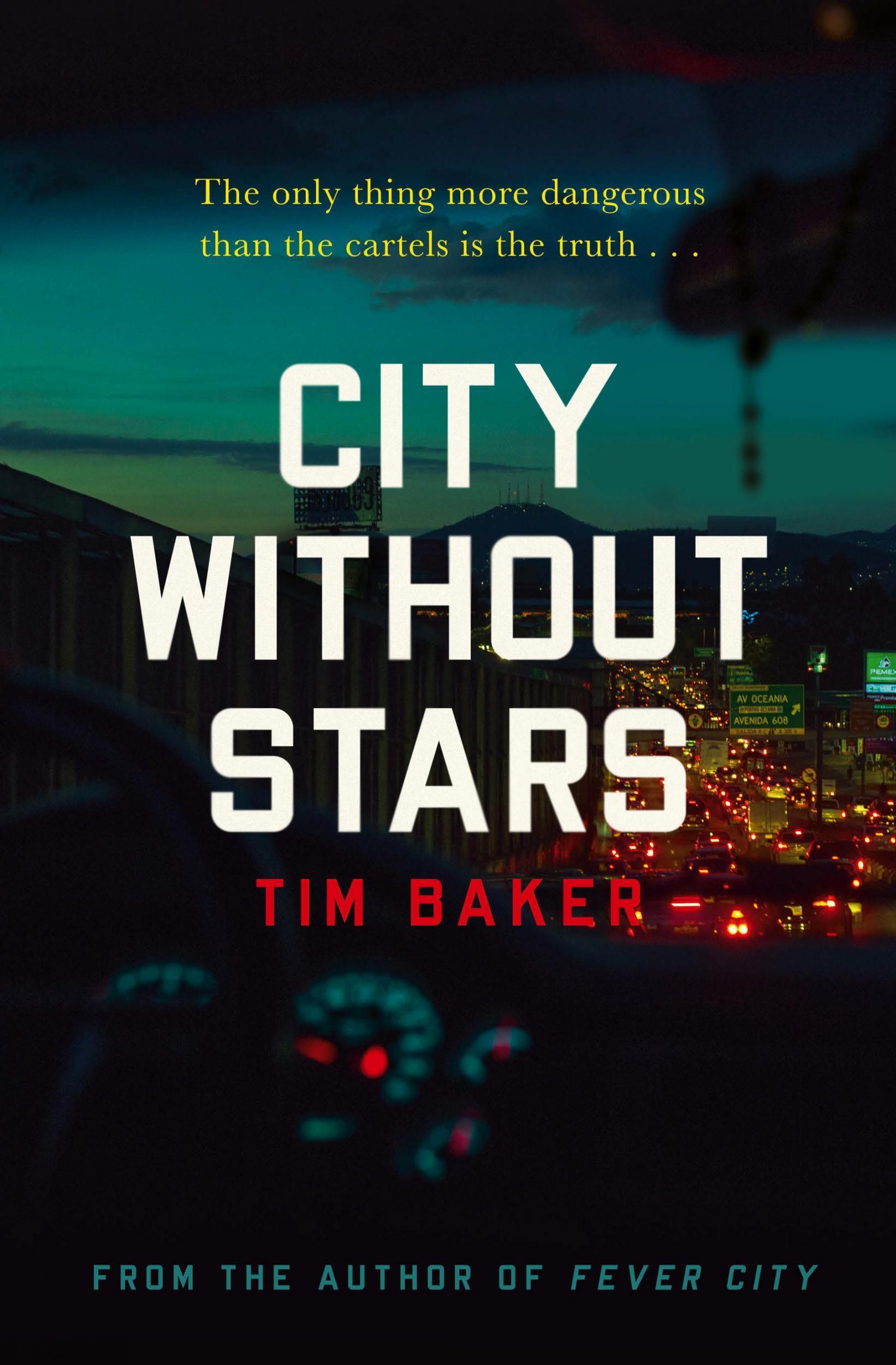
For ultimately this is not just a “Mexican problem” – this is part of a massive, worldwide crisis caused by political corruption and institutional collusion with organised crime. Mexico might be one of the more extreme examples at the moment, but unless we find the political will to fix it soon, we’re all looking at a future of clearing operations, roadblocks and nights of fear hiding from approaching headlights...
Tim Baker’s debut thriller, ‘Fever City’, was shortlisted for the CWA John Creasey New Blood Dagger and the Private Eye Writers of America’s Shamus Award. ‘City Without Stars’, published by Faber & Faber (£12.99), is out now
Join our commenting forum
Join thought-provoking conversations, follow other Independent readers and see their replies
Comments